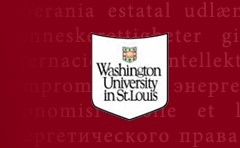Article Title
The Ethics of Big Data in Genomics: The Instructive Icelandic Saga of the Incidentalome
Publication Title
Washington University Global Studies Law Review
Abstract
DeCODE Genetics, Inc., a pioneering Icelandic biotech firm, recently introduced a free website that permits Icelanders to learn whether they carry mutations in the BRCA2 gene that are known to increase cancer risk, even if these citizens have never participated in genetic testing. Approximately five thousand Icelanders have elected thus far to receive their status. This site is made possible by the consanguinity of Icelandic citizens, who number fewer than 350,000, and their detailed genealogical records dating back centuries, a set of circumstances that presents a unique opportunity to study genetic mutations and the medical disorders associated with them. Using such information, deCODE has the ability to impute genetic information about individuals without any legal requirement to obtain their informed consent.
This ability to impute individuals’ genotypes without having gathered bio-specimens or medical information directly from them calls into question researchers’ duty to inform individuals about their health risks, and the individuals’ right not to know (“RNTK”), defined as the idea that people ought to be able to control their receipt of genetic information about themselves. The emergence of unanticipated and yet highly significant genetic findings is referred to as the “incidentalome.” Commentators use the phrase “incidental findings” (“IFs”) to refer to medically important information that arises from research but is unrelated to the goals of that research.
This article analyzes the return by researchers of genetic IFs to individuals whose genotypic data has been imputed, and who therefore have not indicated their consent to receive such information. While Iceland is at the forefront of this issue due to its small, homogeneous population, other nations increasingly encounter the same need to balance individual autonomy with responsibility for public health.
Part II of this Article will consider the global rise of biobanks and the concomitant challenges posed to the right not to know. Part III considers how the incidentalome arises in Iceland, a country renowned for its genomic research, while Part IV examines the current debate in Iceland regarding the release of imputed genomic information to its citizens. International laws and norms regarding the RNTK are the subject of Part V. Part VI of this Article explores the legal and ethical arguments surrounding the three possible approaches considered in Iceland for the release of imputed BRCA2 genetic data: no return of the data; make it publicly known that the information is available and thus enable individuals to take the initiative to request that information for themselves; or contact the affected individuals directly to inform them that researchers possess information relevant to their health. Because similar legal and ethical questions arise when health care providers consider their duty to inform individuals exposed to HIV and AIDS, Part VII analyzes considerations surrounding the provision of this risk information. Finally, Part VIII of this Article proposes an approach for the future, emphasizing the need for a robust public service campaign that encourages individuals to access their imputed genetic data and, more broadly, for expanded governmental investment in and public access to genetic testing.
Recommended Citation
Donna M. Gitter,
The Ethics of Big Data in Genomics: The Instructive Icelandic Saga of the Incidentalome,
18
Wash. U. Global Stud. L. Rev.
351
(2019),
https://openscholarship.wustl.edu/law_globalstudies/vol18/iss2/6
